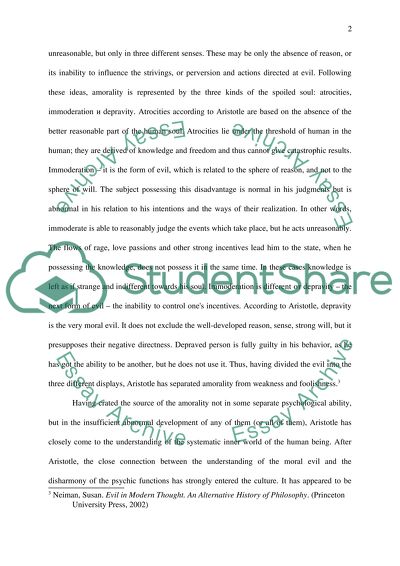Cite this document
(“The role of evil in Aristotle, Kant and Hannah Arendt Essay”, n.d.)
The role of evil in Aristotle, Kant and Hannah Arendt Essay. Retrieved from https://studentshare.org/philosophy/1527324-the-role-of-evil-in-aristotle-kant-and-hannah-arendt
The role of evil in Aristotle, Kant and Hannah Arendt Essay. Retrieved from https://studentshare.org/philosophy/1527324-the-role-of-evil-in-aristotle-kant-and-hannah-arendt
(The Role of Evil in Aristotle, Kant and Hannah Arendt Essay)
The Role of Evil in Aristotle, Kant and Hannah Arendt Essay. https://studentshare.org/philosophy/1527324-the-role-of-evil-in-aristotle-kant-and-hannah-arendt.
The Role of Evil in Aristotle, Kant and Hannah Arendt Essay. https://studentshare.org/philosophy/1527324-the-role-of-evil-in-aristotle-kant-and-hannah-arendt.
“The Role of Evil in Aristotle, Kant and Hannah Arendt Essay”, n.d. https://studentshare.org/philosophy/1527324-the-role-of-evil-in-aristotle-kant-and-hannah-arendt.


